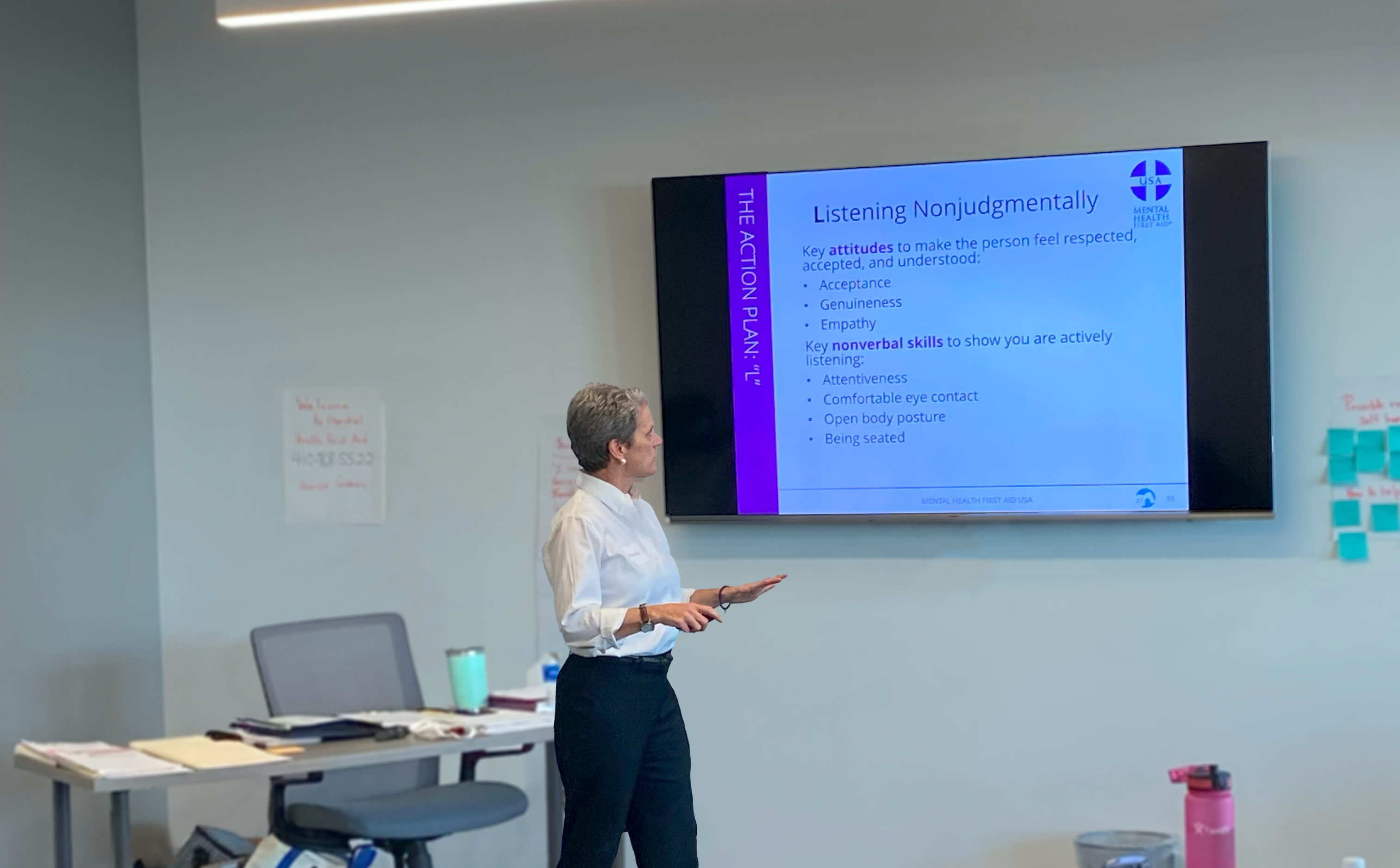
Mental Health First Aid in AAC
CFAAC Programming
ROOTED IN CARE: MENTAL HEALTH FIRST AID IN ANNE ARUNDEL COUNTY
For the past four years, in response to a growing nationwide mental health crisis, CFAAC has offered Mental Health First Aid courses. CFAAC’s 2022 Community Needs Assessment Report underlined the need for these programs, especially the increased demand for children's mental health services and the shortage of providers. This intensive, curriculum driven course, which equips adults with the essential skills to recognize signs of mental health challenges and support those in crisis, is led by expert instructors who specialize in adult and youth mental health.
Naeemah Staggs, MHS, an Adult Mental Health First Aid course instructor and a Senior Training Specialist at the University of Maryland, said that while we’ve made great strides in expanding access, the gaps persist. “Mental Health First Aid helps bridge these gaps by equipping participants with the skills to support others, often before a crisis occurs,” she said.
The course follows an evidence-based curriculum and while not a support group, it provides resources for participants, said Marcie Gibbons, a Youth Mental Health First Aid instructor, HUB Coordinator for Anne Arundel County Mental Health Agency, and a Clinical Social Worker.
Naeemah and Marcie, both CFAAC Board members, said the course clears up some common misconceptions: mental health challenges aren’t rare, they are common. There’s not just one way to
treat mental health concerns; there’s a wide range of treatment and support. And the courses aren’t just for professionals—they are for everyone.
“People can use the training at work, home, and in their faith communities. It translates into every corner of their lives,” said Marcie. “Everyone needs to know the initial signs of a mental health concern to discover a pattern. If someone can spot early signs and symptoms and get individuals help on the earlier side, it can avoid a crisis. Getting them help earlier can change lives.”
Naeemah agreed and added that participants not only gain skill sets to help others but also deepen their own mental health awareness. “They're walking away with skills and knowledge that have broad applicability throughout their life,” she said.
One participant who garnered new skills was Kimberly Weiner, Chief Impact Officer at the Ulman Foundation, a nonprofit whose mission is to create a community of support for young adults and
their families affected by cancer. “The training has helped me feel more prepared to create a supportive environment for young adults facing cancer, ensuring they have not only medical resources but also emotional and mental health support when they need it most,” she said. “It reinforced the importance of active listening, reducing stigma, and offering support without judgment. The training also provided practical strategies to recognize signs of distress and connect young patients with mental health resources, ensuring they feel heard, supported, and empowered during a
difficult time. Learning the Action Plan (ALGEE) was a gamechanger not only in how I approach situations at work but also in my personal life.
“I learned how to assess and approach clients or colleagues experiencing a mental health challenge with confidence and know I am in a better position to support someone in need or facing a crisis,” Kimberly added. This newfound confidence and optimism it brings to participants is why Marcie continues to teach. “I think participants leave with hope for recovery,” said Marcie. “That's why I've been doing it for so long — because of the hope it brings.”